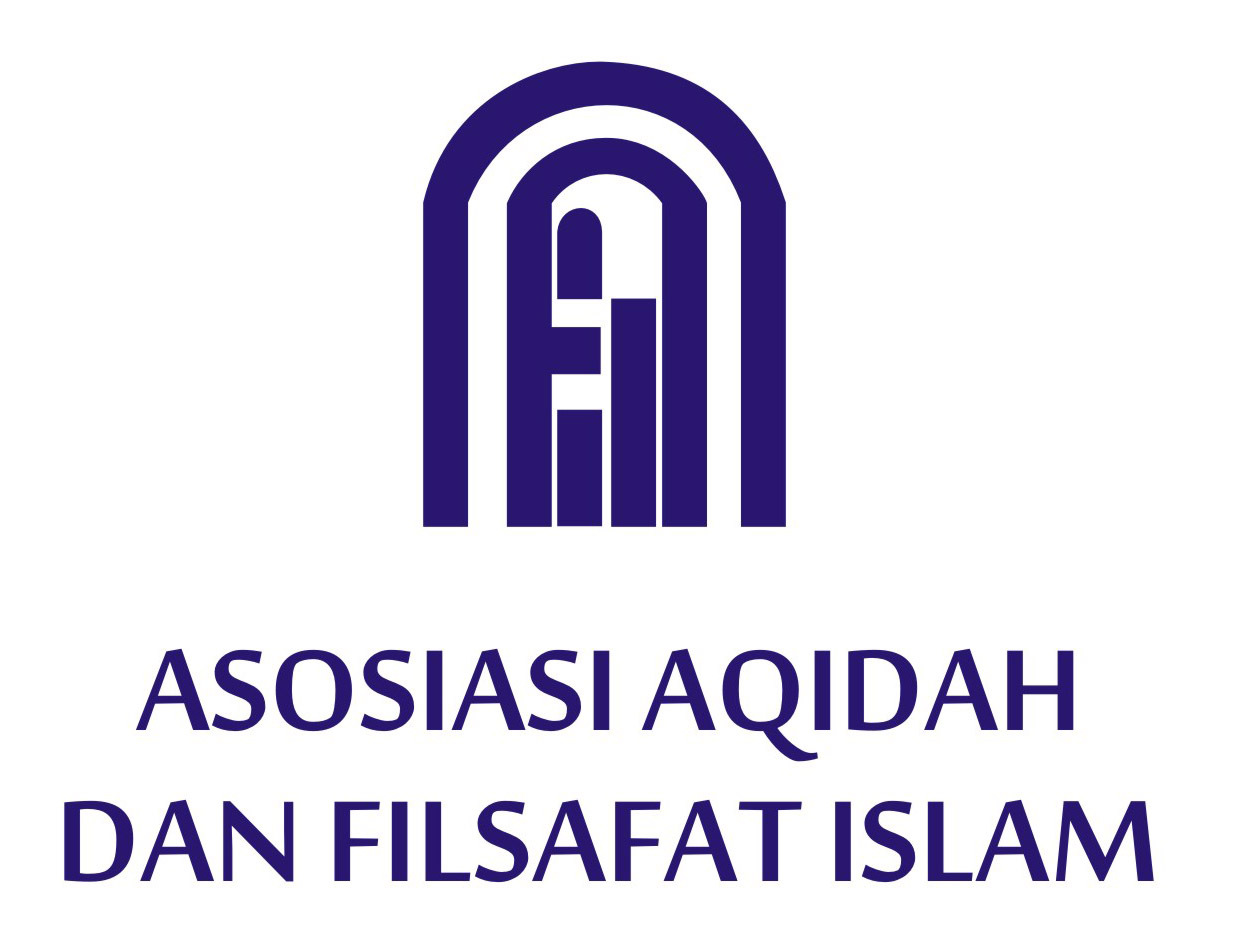Cosmological Dimensions in The Teachings of The Naqshabandi Sufi Order
Abstract
In general, studies about tariqa have put more emphasis on aspects related to ritual teachings and spiritual experience of the Sufi leaders. Little has been studied so far about how teachings of a Sufi order are related to cosmological concepts. This paper aims to analyze the cosmological concepts that are taught in the teachings of the Naqshbandi Sufi order in the district of Pauh, the city of Padang, West Sumatera. Data for this research are gathered through interviews, observation and documentation. These data are then analyzed with content analysis method. The research find that the Naqshbandi order perceives the notion of sharia as one that is intimately related with divine revelation and the universe’s law of order, a holistic approach that regards deeds of a sālik (a Sufi traveler) as part of the cosmic order. The existing seven types of sharia law outline seven layers of heaven and earth. Thus, a mystic attainment of martabah hakikat (degree of reality) represents seven layers of heaven and earth, which are manifested through amaliah lathāif (inner ‘worship’ rituals) - all of which are attributed to internal parts of the human soul, such as brain, heart, spleen, liver, lungs and all internal parts of the human physical body. Within the Naqshbandi Sufi order, all sālik aredevised to be able to attain close relationship with God, and to become an imagery of human’s mystical potentials in their everyday lives’ activities.
Keywords
Full Text:
PDFReferences
Al-Baghiwy, Abu Muhammad Khusayn, Syarkhu Sunnah, Kairo, Dar al-Kutub Ilmiyah, tt
Al-Ghazali, Abu Hamid, Ihya Ulumuddin, volume IV, Kairo: Dar el-Qalam, tt.
An-Najjar, Zaghlul, Pembuktian Sains dalam Sunnah (terj), Jakarta: Amzah, 2006
Arifin, Bambang Syamsul, Psikologi Agama, Bandung: Pustaka Setia, 2008
Aune, David E., Cosmology: Westminser Dictionary of the New Testament and Early Cristian Literature, Westminster John Knox Press, 2003
Bakker, Anton, Metodologi Penelitian Filsafat, Yogyakarta: Kanisius, 1995
Bruinessen Van, Martin, Tariqat Naqsyabandiyah di Indonesia (Survei Historis, Geografis dan Sosiologis), Bandung : Mizan, 1996
Carroll, Sean, Dark Matter, Dark Energy: The Dark Side of the Universe, Cal Tech, The Teaching Company, Guidebook Part 2, 2007
Dawudi, Shafwan Adnan, Al-Labab fi Ushulil Fiqh, Kairo: Dar el Qalam, tt
Edwards, Paul (ed), The Encylopedia of Philosophy, New York-London, Mac Millans Publishing Co.Inc, 1976
Hubble, Edwin, A Relation Between Distance and Radial Velocity among Extra-Gaklactic Nebule, Proceedings of the National Academy of Sciences Volume 15: March 15
Kattsoff, Louis, Pengantar Filsafat, Yogyakarta; Tiara Wacana, 1986
Katsuhiko, Sato, First-order phase transition of a vacuum and the expansion of the Universe, Monthly Notices of Royal Astronomical Society,1981
Keohana, Jonathan, “Big Bang Theory”, NASA's Imagine the Universe: Ask an astrophysicist (November 08, 1997), diakses tanggal 03 September 2017
Ngarayana, Konsep Penciptaan Alam Semesta Menurut Hindu. Islam, Kristen dan Konsep Modern, 30 April 2009, diakses 15 Februari 2018
Narendrany Hidayati, Heny & Andri Yudiantoro, Psikologi Agama. cet-1, Jakarta: UIN Jakarta Press, 2007
Runes, D., Dagobert, Dictionary of Philosophy, Tottawa, Little Field Adams & Co., 1977
Sena, I Gusti Made Widya, Konsep Kosmologi Dalam Perspektif Agama Buddha, Jurnal Penelitian Vidya Samhita, Vol 1. No. 1, 2015
Sri Mulyati, Tariqat-Tariqat Muktabarah di Indonesia, Jakarta: Kencana, 2004
Tualeka Zn. Hamzah, dkk., Akhlak Tasawuf, Surabaya: IAIN Sunan Ampel Press, 2011
Yunus, Mahmud, Kamus Arab-Indonesia, Jakarta: Hidakarya Agung, 1989
Wright, E.L., “What is the evidence for the Big Bang?”, Frequently Asked Ques-tions in Cosmology, UCLA, Division of Astronomy and Astrophysics, 9 May 2009. Diakses tanggal 03 September 2017.
Wright, J. Edward, The Early History of Heaven, USA: Oxford University Press, 2002
Wawancara dengan Buya Syafri Malin Mudo, Mursyid Tariqat Naqsyabandiyah di Kota Padang pada tanggal 19 Juni 2016, jam 14.00 sd. 18.00
Wawancara dengan Ja’far, Murid Tariqat Naqsyabandiyah di Kota Padang pada tanggal 19 Juni 2016, jam 14.00 sd. 18.00
Wawancara dengan Saidah, Murid Tariqat Naqsyabandiyah di Kota Padang pada tanggal 19 Juni 2016, jam 6.00 sd. 9.00
Wawancara dengan Malin Pasaman, Pimpinan Tariqat Naqsyabandiyah di Indaruang, Kota Padang, Sumatera Barat pada tanggal 28 Agustus 2012
Wawancara dengan Dr. Gazali, Dosen Ilmu Tasawuf IAIN Bukittinggi dan pemerhati Tariqat di Sumatera Barat, pada tanggal 3 September 2016
Wawancara dengan Munyar (Murid Tariqat Naqsyabandiyah di Kota Padang ), pada tanggal 27 Agustus 2016, jam 13.00-15.00 WIB
DOI: http://dx.doi.org/10.24042/klm.v13i2.4548
Refbacks
- There are currently no refbacks.
Copyright (c) 2019 KALAM
License URL: https://creativecommons.org/licenses/by-sa/4.0
KALAM [ISSN: 0853-9510, e-ISSN: 2540-7759] published by Faculty of Ushuluddin and Religious Study, Universitas Islam Negeri Raden Intan Lampung in collaboration with Asosiasi Aqidah dan Filsafat Islam (Islamic Theology and Philosophy Association)
Office: Faculty of Ushuluddin and Religious Study, Universitas Islam Negeri Raden Intan Lampung. Letkol H. Endro Suratmin Street, Sukarame, Bandar Lampung, Lampung, Indonesia, Postal code 34513. Website: http://ejournal.radenintan.ac.id/index.php/kalam, Email: kalam@radenintan.ac.id.
 This journal is licensed under a Creative Commons Attribution-ShareAlike 4.0 International License.
This journal is licensed under a Creative Commons Attribution-ShareAlike 4.0 International License.


